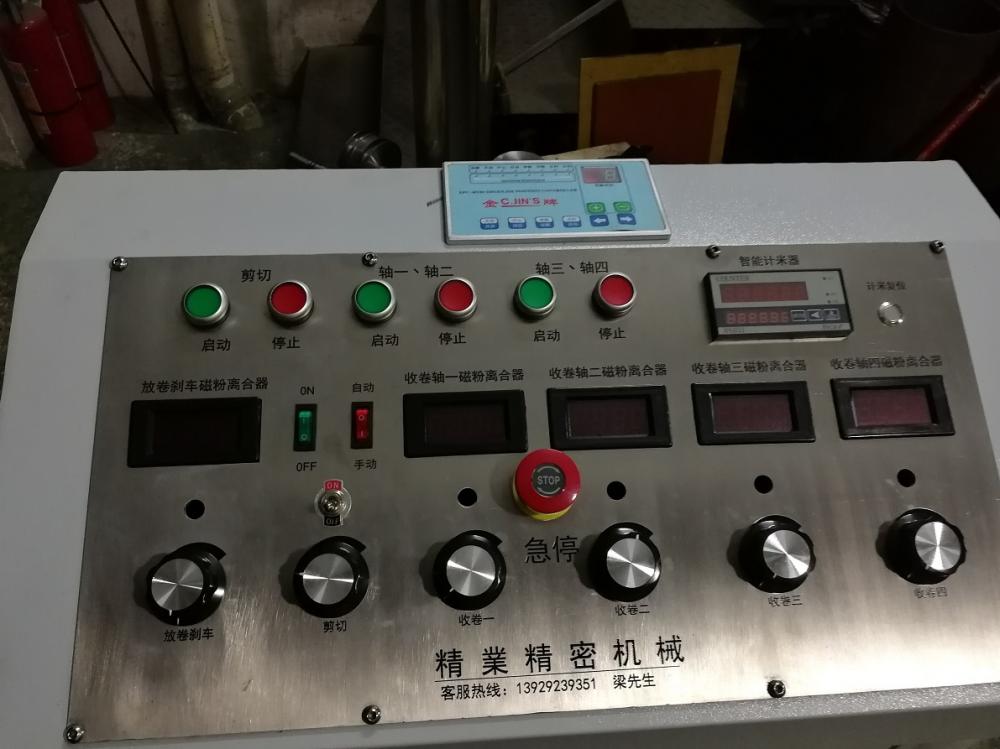(1). Raw material specifications
1. Material: metal strips such as copper and stainless steel strips.
2. Material width: within 420mm.
3. Material thickness: copper strip 0.05mm∽1.5mm, stainless steel 0.05mm∽1.0mm.
4. The inner diameter of the raw material roll: ï¿ 300mm.
5. Outer diameter of raw material roll:â‰¦ï¿ 1500mm.
6. Weight of raw material roll: ≤3000kg.
Turning Machinery,Design Metal Slitting Machine,New Type Metal Slitting Machine,New Type Metal Splitting Machine Dongguan Liaobu Jingye Precision Machinery Factory , https://www.dgjyjmjx.com
The mining price of the Australian Mining Company and its Asian customers has been negotiated for more than 7 months since November 2007. The Japanese company and Brazilian VALE reached a 65% price increase agreement (February 18), but the RIO and BHP used sea freight. Based on its advantages, it demanded additional price increases and refused to accept the initial price. The supply and demand sides were greatly divided. After the initial price was determined, the Australian ore price negotiations were delayed for more than four months. Finally, with the Australian mining company's wish to obtain additional gains, Baosteel stated in its statement: "The achievement of this result reflects the sincerity of both parties to maintain the traditional pricing mechanism," but in fact the annual negotiation pricing mechanism is nearly collapsed.
Recommended reading Academy of Social Sciences report: China's hot money scale 1.75 trillion US dollars or more than the external storage ... Wang Yi has already explained the problem Wen Jiabao: to avoid large-scale economic ups and downs The Securities Regulatory Commission will be held in 16 days 13 companies issued new shares Xie Guozhong: The policy is After the Olympics Founder Securities Analyst Hua Xin jumped suicide Steel prices rose Steel enterprises in the year Loss of 800 billion yuan in annual losses Shanghai-Shenzhen listed companies reported more than 30% of reports Negotiated pricing mechanism existed in name only
According to the traditional negotiation practice, each fiscal year is represented by the Japanese iron ore users in the East, represented by the German users in Europe, and the world’s major iron ore suppliers BHP Billiton Group of Australia, Hamersley of the Rion Tinto Group, and VALE of Brazil. The company negotiated to determine the price of iron ore products in the Asian market and the European market.
According to the negotiation practice, after the agreement between any of the consumer companies and the price of any of the suppliers, the negotiation is completed. Both the international iron ore supply and demand sides accept this price as the new annual price, that is, the initial price. And ore suppliers will generally promise when they reach a price agreement with the first major customer. They will not give lower prices when they negotiate with the subsequent steel mills. The steel mills will also promise that they will not accept higher prices from other mines. The price range. The initial price generated on this basis was considered fair and widely accepted by the supply and demand sides. In summary, the annual negotiation pricing has two distinct features: annual pricing and the same market price.
In 2008, the results of the negotiations between the Australian and Asian iron and steel enterprises have overturned the Asian price that the Japanese company and the Brazilian VALE reached 65% on February 18. That is, the mainstream mining companies in the world have emerged in the same market (Asia). Two different sales prices, while Asian steel companies give different suppliers different price benchmarks.
The Australia's mineral price negotiations in 2008 showed that the world's mainstream mines and steel mills can no longer refer to the initial prices of negotiations of other companies. From this point of view, the annual negotiation mechanism has been disintegrated. If the significance of negotiations exists only to maintain the annual pricing of long-term contracts, then each steel company and mining company only need to negotiate their own contract prices, and they do not need to take into account the results of negotiations of other homes, so that the annual ore price negotiations will no longer be global The multilateral negotiations agreed between the supply and demand sides of iron ore, but the simple contract negotiations between enterprises.
Jingye precision mechanical slitting machine is specially used for slitting various thin strips, such as copper,
Aluminum, iron, stainless steel, up to + -0.002mm

On the evening of June 23, Baosteel announced that it had reached an agreement with Rio Tinto on the base price of the 2008 PB fines, Yangdi fines and PB blocks. The price of fine ore rose by 79.88%, and the price of lump ore increased by 96.5%. Another Australian mining giant, BHP Billiton (BHP), and other Asian steel companies such as Nippon Steel, JFE and Posco, should also quickly follow and reach an agreement.